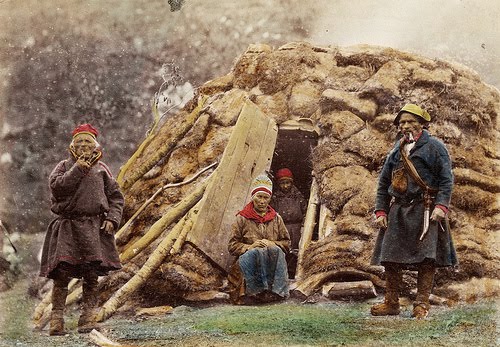Its the new frontier. Until we arrive its going to be a bumpy road. what changes will work harken in the next ten years.The Internet, telepresence and increasingly flexible management at many companies are making it possible to create structural changes in the way work is carried out. The adage that eventually has now become almost immediately. The office has become a fundamental unit of our lives, one which challenges the family in terms of predominant importance and influence, yet technology is placing the individual on the cusp of some major changes. Its not rocket science to understand why the unemployment rate needle refuses to fall. Michael Ferguson has been talking about the organization chart being eaten from the bottom up. As IBM’s Watson showed on Jeopardy, AI can go very deeply into the fabric of tech created unemployment. In particular the accounting and legal professions seem acutely vulnerable to the loss of relatively well paid professions. Studies have already shown computer legal research and prediction of case outcome scenarios to be superior to that of seasoned and reputable veterans in the field. Who knows, perhaps in five years the thugs in the London riots will be joined by newly pogied CA’s, lawyers and medical practitioners fighting over consumer spoils in looted shops….

Read More: http://www.guardian.co.uk/music/2008/jul/25/worldmusic.egypt---The Bedouin Jerry Can Band, as their name suggests, use jerry can percussion - specifically, metal oil cans and ammunition boxes found in the desert from the 1967 six-day war and the subsequent Israeli occupation of Sinai. They use these found instruments to back traditional Bedouin songs - about love, coffee and camels - along with the magroona double flute and the shimmering simsimiyya, the traditional lyre that is found throughout the Red Sea and Suez Canal region....
Michael Ferguson at the Future101.blogspot has been writing very profoundly on the Live Anywhere Option which is slowly been actualized and will have some profound structural changes on our lives. With the spread of telepresence and more reliable high-speed networks worldwide, it is only a matter of time before many more of us can divorce ourselves from living in close proximity to our companies and high density housing and instead live in closed community tropical paradises resulting in large migration of professionals towards the lower latitudes But unless we consider the changes arising, and the potentials, most of us will left hanging when the opportunity presents itself….

Read More: http://thelede.blogs.nytimes.com/2011/07/27/afghan-deadpan-kabul-gets-its-version-of-the-office/ Afghan comedy The Ministry.---Each of the characters embodies a set of Afghan stereotypes of Afghan civil servants — the fake university degrees, the denials of blindingly obvious nepotism, the pettiness, the bravado, the bizarre fashion choices — and their respective positions poke fun at the corruption that has left Afghans feeling cheated by their government over the past decade. The butler on the show, for example, has a master’s in political science, but he’s a butler because his family lacks connections. At the same time, the minister’s brother-in-law insists he was hired based on merit, and how could anyone think otherwise? And then there’s the security guard, an elderly, narcoleptic, seemingly toothless man who sleeps with his head propped on the barrel of his loaded rifle. War-weary Afghans can certainly use a few laughs, but professional comedy in Afghanistan has a serious side as well.
…A cornerstone of Industrial Age business has been the notion that a large number of employees make a daily trek to a central location and engage in work. This practice is coming to an end for a couple of reasons. First, telepresence is ending much of the need for physical proximity within work groups. Second, as I discuss in The Future 101 Part One under Technological Unemployment, the organizational structure that supported the office is disappearing from the bottom up.
The phenomenon of the virtual office is being well covered. When combined with various other telepresence tools such as video conferencing and cloud networks, there really isn’t much need for people to physically aggregate in a traditional office setting. The practice is more a result of unchanged corporate assumptions. It often requires a new generation of managers with a new set of corporate assumptions to make such fundamental changes. However, in this case, the cost-benefit ratio may be so favorable that adoption of distributed work teams may actually be closer than most observers believe. Certainly start-ups have a strong incentive, by eliminating office and travel costs to begin with a virtual office. Once established the successful ones may choose to simply remain ‘in the cloud.’…

Image: http://commons.wikimedia.org/wiki/File:PikiWiki_Israel_7476_Bedouins_in_the_the_Sinai_desert_1981.jpg Read More: http://thefuture101.blogspot.com/2011/08/death-of-industrial-age-office.html?spref=fb---Ferguson: In the end, we will find that enterprises are comprised of a relatively small management team providing the vision, the volition and the judgment that, frankly, humans will not willingly cede to computers. These few remaining executives can live anywhere. They can teleconference with their team members. They can share files in the cloud and access their expert systems from anywhere. When product is physical rather than virtual, there will need to be a automated fabrication and shipping plant. However, the team members can operate it just as easily from New York City as from Bora Bora.
…This will have a dramatic impact on society, directly, and through The Live Anywhere Option. The population of EuroAmerica is tied to large, Industrial Age metropolitan areas. This is not because they want to live in one. Most do not. Rather, they are tied to their job location and that, typically, ties them to a large urban area. As jobs require virtual presence, not physical presence, partners, employees and contractors may choose to live anywhere. As they choose, the Industrial Age metropolitan areas will begin to depopulate….

Image: http://goamusic.wordpress.com/tag/india/ Read More: http://thefuture101.blogspot.com/ Ferguson:The clerical positions will not have another decade. By 2020, and probably well before, they will be gone. Most of the professional positions will not make it through the 2020's. Again, watching Watson and understanding that Moore's Law may be slowing down, but rapid advancements will continue for quite some time, it doesn't even seem very likely that professionals will keep their jobs much past 2020.
Over the long run, the second item is of much greater significance. Essentially, virtually all clerical and most professional workers in the traditional office will be replaced by expert systems and other forms of artificial intelligence. The lower level, Accounts Payable, Inventory Control, Payroll, Accounts Receivable and Purchasing Clerks are on borrowed time. The current level of technology is sufficient to automate and eliminate their jobs. There are just a few product introductions necessary in order to turn many office environments into a wasteland. Read More:ttp://thefuture101.blogspot.com/">http://thefuture101.blogspot.com/
ADDENDUM:
The Live Anywhere Option. India:
One guy I met described his dream for his first trip as “looking for the mountains-and-solitude side of India. I’m looking for the guru who lives in a cave and has renounced the world”. And it’s a nice idea. Until he arrives and realises there are a billion people and hurdles to clear in order to get there. The west has always been prone to Indomania. From the Beatles to Schopenhauer, poets, philosophers, writers, musicians and artists have lauded the nation as a source of inspiration and wisdom.Whenever you see hot pink or harem pants on the catwalk, you can bet your last organic beanburger it’s because the designer just “did India”. Parents who hit the hippie trail urge their kids to follow in their footsteps. Despite other exotic borders opening, India still tops the backpackers’ destination list, according to the student travel agency STA.
But back to our Indiaaaaaah crew. It is not the entrepreneurship, the mad cities, the promise in the slums or even the ancient civilisation that thrills the wannabe chic yogi, her flesh-revealing Melissa Odabash kaftan packed neatly in her bag (inappropriate attire for anywhere but the most westernised beaches).

Read More: http://songosmeltingpot.blogspot.com/2010/07/sami-people-in-sweden.html ---he Sami (Lapp) people have inhabited the northern portions of Scandinavia, Finland and eastward over the Russian Kola Peninsula since ancient times. Russia, Finland, Norway and Sweden claim territories ill what is now regarded as Sapmi (Lapland).---
The truth is that those looking for the healing “Indian experience” are often so focused on themselves, stuffed away in their retreats, that the only thing they really see are cool things for the flat when they go to some market.
Dhaliwal quotes Salman Rushdie: “The west repeats itself in India as a farce”, then adds his own corollary: “India repeats itself in westerners as tragedy. When a westerner takes on the garb of the Indian in their yoga and chanting, it’s always a sign of inner pain.” In some parts of India, you are more likely to find western yoga teachers than Indian ones. “The Indian teachers lack sympathy, they make the spiritual journey so much less palatable for the tourist on their ‘spiritual journey’,” the yoga instructor Charles Cartmell says.
He describes a type of British woman “used to the form of aerobics with a ‘spiritual’ price tag that has been commonly sold as yoga in the west. You don’t have to be able to stick your toe in your ear to be spiritual; frankly, the process of getting Delhi belly will take you to a more interesting edge in yourself”. At the supposedly ascetic ashram level, savvy Indian gurus have become wise to the tastes of the western spiritual thrill-seeker. Osho — the “Gucci guru” — opened an ashram in Pune popular with a western audience in thrall to one aspect of his teachings: free love. The guesthouse there is more like a minimalist boutique hotel. Read More:http://www.timesonline.co.uk/tol/travel/holiday_type/spas_and_lifestyle/article5598603.ece






 COMMENTS
COMMENTS